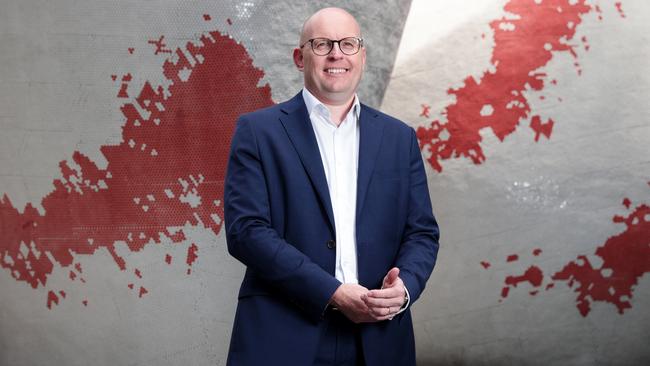Disinterest in AI poses pay gap risk for Gen Z women: KPMG
There is evidence there could be different pay grades for those who are comfortable with this technology and those who aren’t, KPMG says.

Business
Don't miss out on the headlines from Business. Followed categories will be added to My News.
Women could miss out on promotions or pay rises if more isn’t done to promote artificial intelligence to young Australian women, KPMG says.
The consulting firm said Generation Z women, those aged in their teens to mid 20s, were not engaging with AI as much as their male counterparts at a time when the technology was a priority for business.
KPMG chief digital officer John Munnelly said the lack of engagement risked reversing efforts to narrow the gender pay gap when there was evidence there could be different pay grades for those who knew about AI and those who did not.
“We could see that people who can use AI get paid 20 per cent more than people who can’t,” he said. “If you’re going to end up with this disparity in the way people are paid in the future with people who use AI and know how to use it really well and people who don’t, we’ve got to make sure that doesn’t end up with a massive gender pay disparity gap.”
A recent survey of 1048 Australians aged between 15 and 24, commissioned by KPMG, Microsoft and skills digital platform Year 13, showed that female interest in AI was much lower than that of males.
In total, 33 per cent of males reported being very interested in learning AI skills, compared to 24 per cent of Gen Z females, while 33 per cent of males had a very good understanding of the technology compared to 20 per cent of females.
The AI Amplified report from Year 13 says solutions will be needed to make learning about AI more appealing to women and girls.
Mr Munnelly told The Australian that AI was a “brilliant and exciting story”, but the government and businesses needed to be careful about how it was adopted.
He said the lack of engagement was evident in his own household, with his two daughters not interested in AI, while one son was fascinated by it and the other half interested.
Gen Z women were lacking interest in AI because of broader issues around STEM, which was generally considered to be a more appealing career pathway for men. “Everyone knows that we’ve been trying to push STEM into girls at school for a while, but now it’s actually going to have a financial impact,” Mr Munnelly said.
The major accounting firms – KPMG, Deloitte, EY and PwC – have all told The Australian in recent weeks that workplaces will eventually expect that all workers have experience working with AI and that graduates understand the technology.
Mr Munnelly said that if education providers and government did not tackle the issue within the school system, it could have lasting impact.
“We absolutely need to be working on it now to stop the problem from occurring in a couple of years’ time,” he said.
Originally published as Disinterest in AI poses pay gap risk for Gen Z women: KPMG



